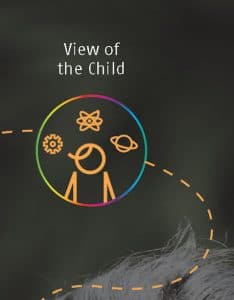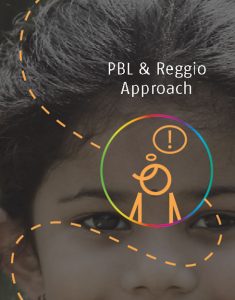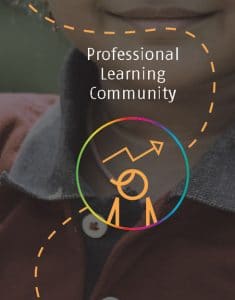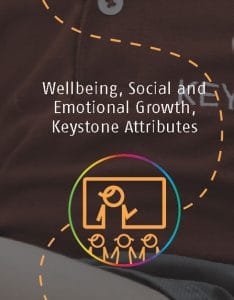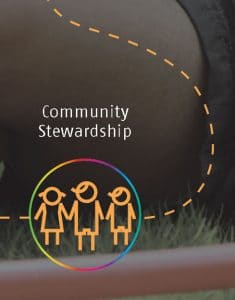-
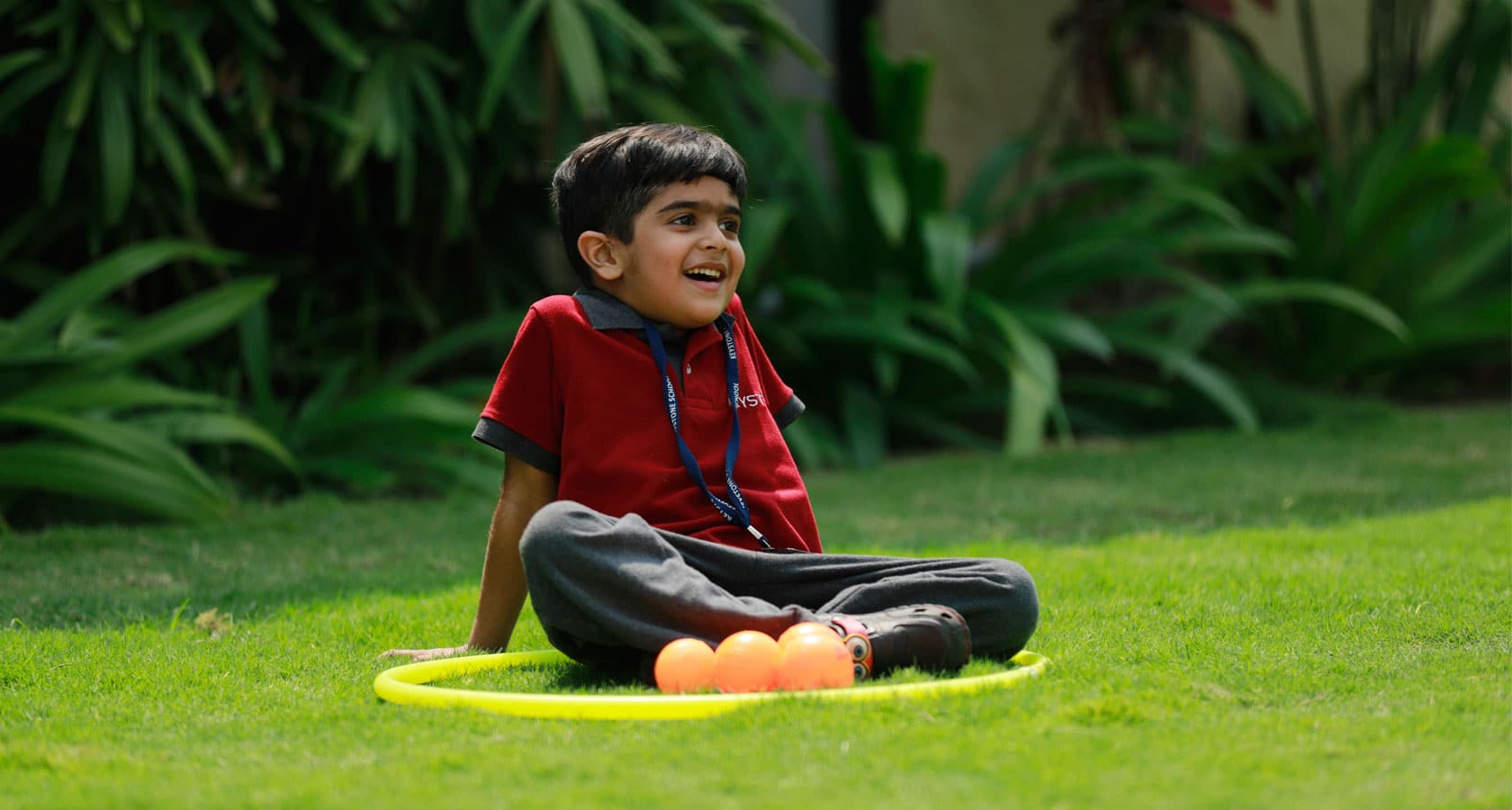 We promote the assimilation ofknowledge through PBL
We promote the assimilation ofknowledge through PBL -
 Designers play the role of a friend,a mentor in the learning expedition
Designers play the role of a friend,a mentor in the learning expedition -
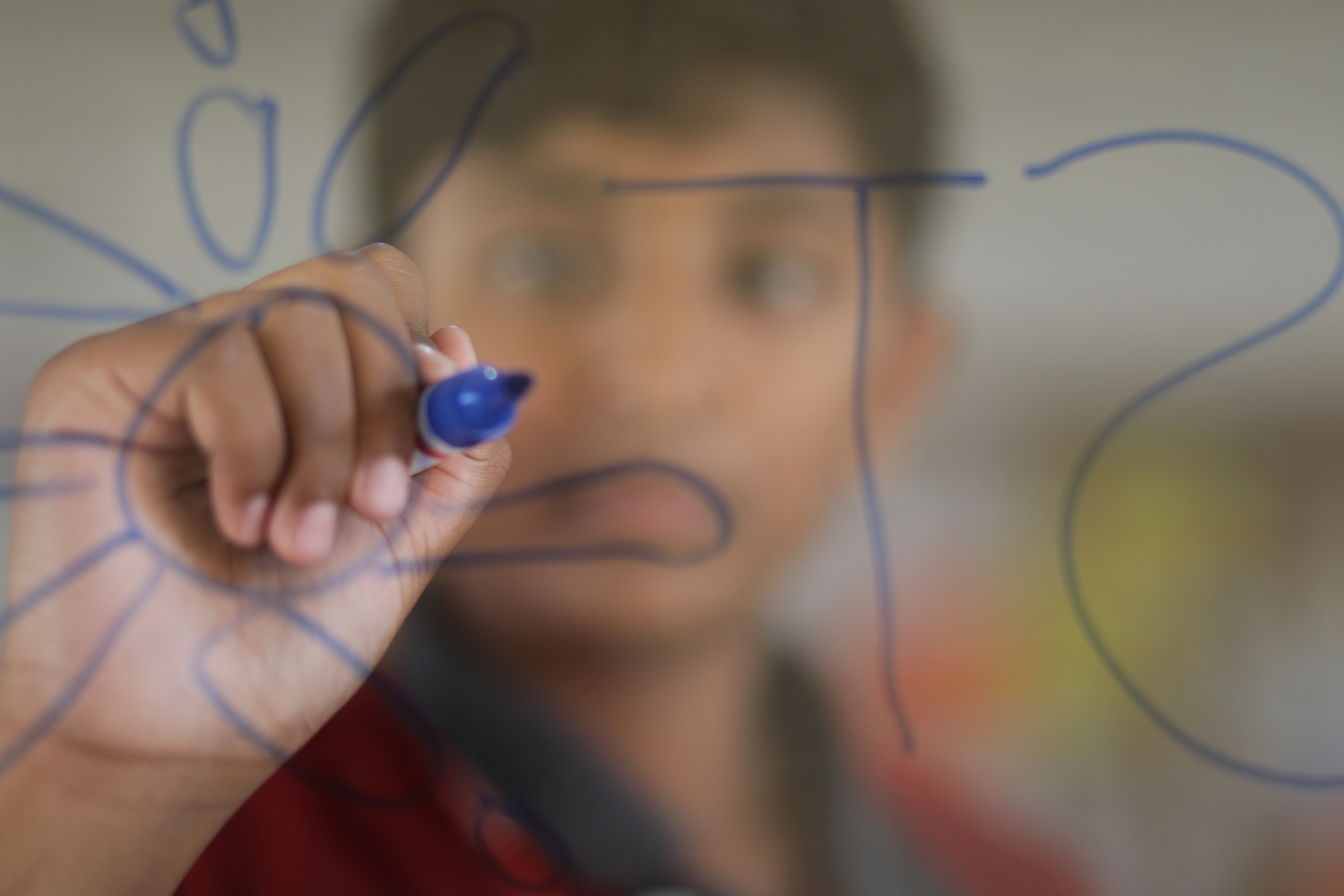 CAIE syllabus brings a global outlook toour progressive learning approach
CAIE syllabus brings a global outlook toour progressive learning approach
Our learners at Keystone see subjects differently. So different that numbers become a form of poetry, conveying a thought becomes chemistry, seeing butterflies fly becomes a language, or for that matter, a game out in the ground becomes pure physics. We make this happen through a framework where we coach children to think beyond the immediate learning elements and encourage them to constantly apply their knowledge in a socially relevant manner whether it is while engaging with their peers in a sports activity or while investigating and presenting solutions to real world problems that they seek out to address in their communities.
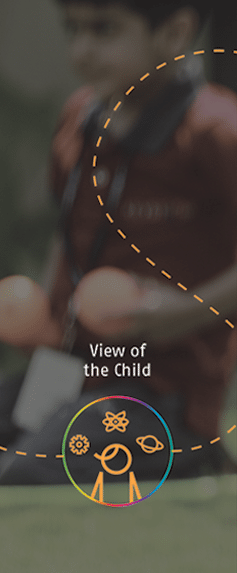
View of the ChildChildren are unafraid, imaginative, creative, curious, and willing learners. We give them ample freedom to uncover their skills and explore the map of their minds. Be it agricultural science or volcanic geography or any other subject, we foster an appreciation for learning.
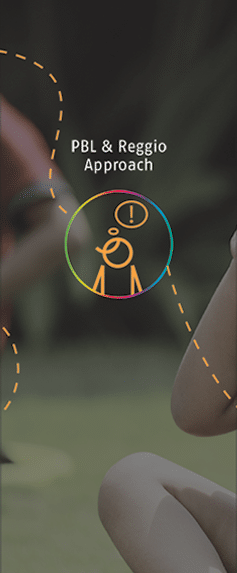


PBL & Reggio ApproachOur progressive learning methodologies in combination with the international curriculum (CAIE) form the basis of our teaching philosophy and make us the best Cambridge schools in Hyderabad. Students learn by working on participative and explorative projects, designed to make them think, question, and seek answers. This helps them to be the co-authors of their own learning and coaches them to tackle real problems.
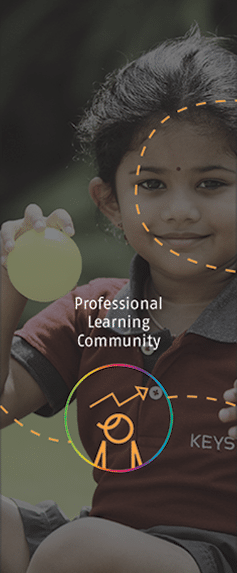


Professional Learning CommunityWe believe that the best way to teach is to go through the process of unlearning, which is a big part of a designer’s job at Keystone. A designer’s role is that of a friend, a mentor, and a partner in a child’s journey of learning. Our Professional Learning Community enables our designers to become the best educators by looking at the world from a child’s perspective.
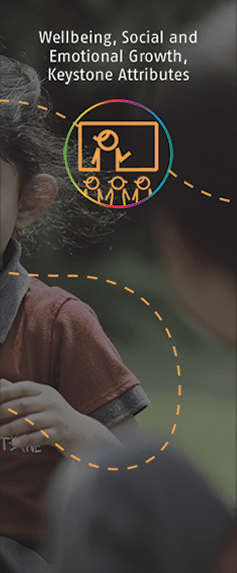


Wellbeing, Social and Emotional Growth, Keystone AttributesChildren need social and emotional tools to face the complexities of the world. It is a community’s collective responsibility to take care of a child’s well-being. This is achieved through our SEL and Attributes programs, specially designed for kids. These programs are conducted in a safe and supportive environment.
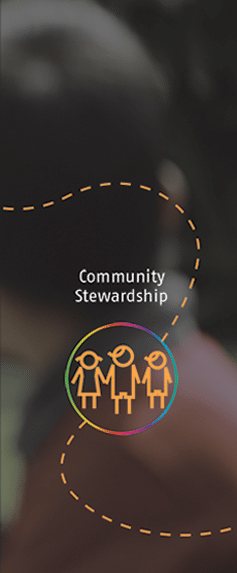


Community StewardshipThe best way to make children contributing members of a community is by actively engaging them. Our kids are regularly exposed to different teaching environments, talks from experts, and visits to local organizations in order to develop an understanding of how things work. Partnerships with subject matter experts provide us with support for various programs. Children too teach and guide others.
View of the Child
Children are unafraid, imaginative, creative, curious and willing learners. We give them ample freedom to uncover their skills and explore the map of their minds. Be it agricultural science or volcanic geography or any other subject, we foster an appreciation for learning.
PBL u0026amp; Reggio Approach
Our progressive learning methodologies in combination with the international curriculum (CAIE) form the basis of our teaching philosophy. Students learn by working on participative and explorative projects, designed to make them think, question and seek answers. This helps them to be the co-authors of their own learning and coaches them to tackle real problems.
Professional Learning Community
We believe that the best way to teach is to go through the process of unlearning, which is a big part of a designer’s job at Keystone. A designer’s role is that of a friend, a mentor and a partner in a child’s journey of learning. Our Professional Learning Community enables our designers to become the best educators by looking at the world through a child’s perspective.
Wellbeing, Social u0026amp; Emotional Growth, Keystone Attributes
Children need social and emotional tools to face the complexities of the world. It is a community’s collective responsibility to take care of a child’s wellbeing. This is achieved through our SEL and Attributes programs, specially designed for kids. These programs are conducted in a safe and supportive environment.
Community Stewardship
The best way for children to become contributing members of a community is by actively engaging them with their community. Our kids are regularly exposed to different teaching environments, talks from experts and visits to local organisations in order to develop an understanding of how things work. Partnerships with subject matter experts provide us support for various programs. Children themselves too teach and guide others.
View of the Child
Children are unafraid, imaginative, creative, curious and willing learners. We give them ample freedom to uncover their skills and explore the map of their minds. Be it agricultural science or volcanic geography or any other subject, we foster an appreciation for learning.
PBL u0026amp; Reggio Approach
Our progressive learning methodologies in combination with the international curriculum (CAIE) form the basis of our teaching philosophy. Students learn by working on participative and explorative projects, designed to make them think, question and seek answers. This helps them to be the co-authors of their own learning and coaches them to tackle real problems.
Professional Learning Community
We believe that the best way to teach is to go through the process of unlearning, which is a big part of a designer’s job at Keystone. A designer’s role is that of a friend, a mentor and a partner in a child’s journey of learning. Our Professional Learning Community enables our designers to become the best educators by looking at the world through a child’s perspective.
Wellbeing, Social u0026amp; Emotional Growth, Keystone Attributes
Children need social and emotional tools to face the complexities of the world. It is a community’s collective responsibility to take care of a child’s wellbeing. This is achieved through our SEL and Attributes programs, specially designed for kids. These programs are conducted in a safe and supportive environment.
Community Stewardship
The best way for children to become contributing members of a community is by actively engaging them with their community. Our kids are regularly exposed to different teaching environments, talks from experts and visits to local organisations in order to develop an understanding of how things work. Partnerships with subject matter experts provide us support for various programs. Children themselves too teach and guide others.

